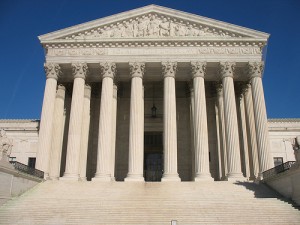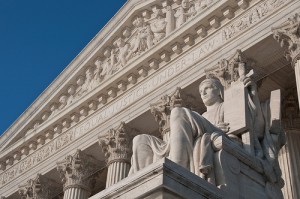Monday Morning Review: Local Governments in the Federal Appellate Courts
Here's how local governments fared in the federal courts of appeals during the past week. Second Circuit Dorsett v. County of Nassau, No. 13-641 (Oct. 18, 2013) (affirming dismissal of First Amendment retaliation claim against County because plaintiff lacked standing to challenge County's delay in acting on settlement agreement) Fifth Circuit Bradberry v. Jefferson County, No. 12-41040 (Oct. 17, 2013) (in challenge under Uniformed Services Employment and Reemployment Rights Act, finding that collateral estoppel did not bar the County from re-litigating facts determined in...




